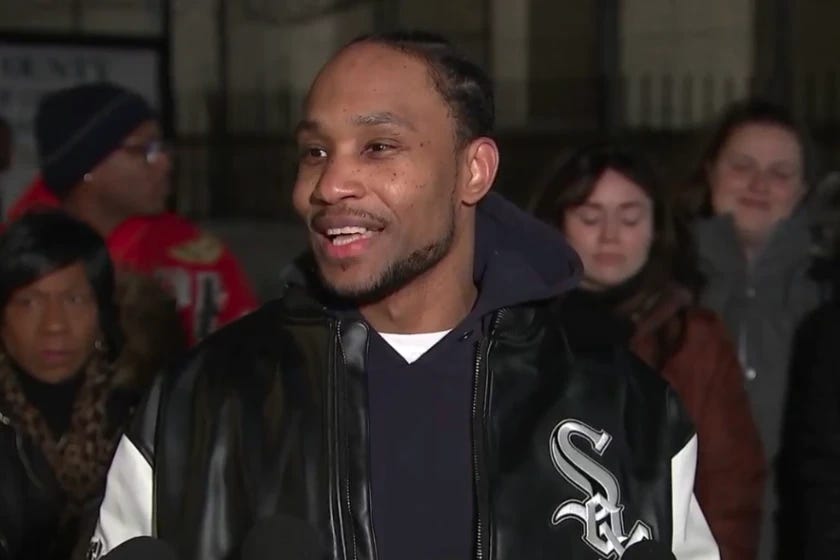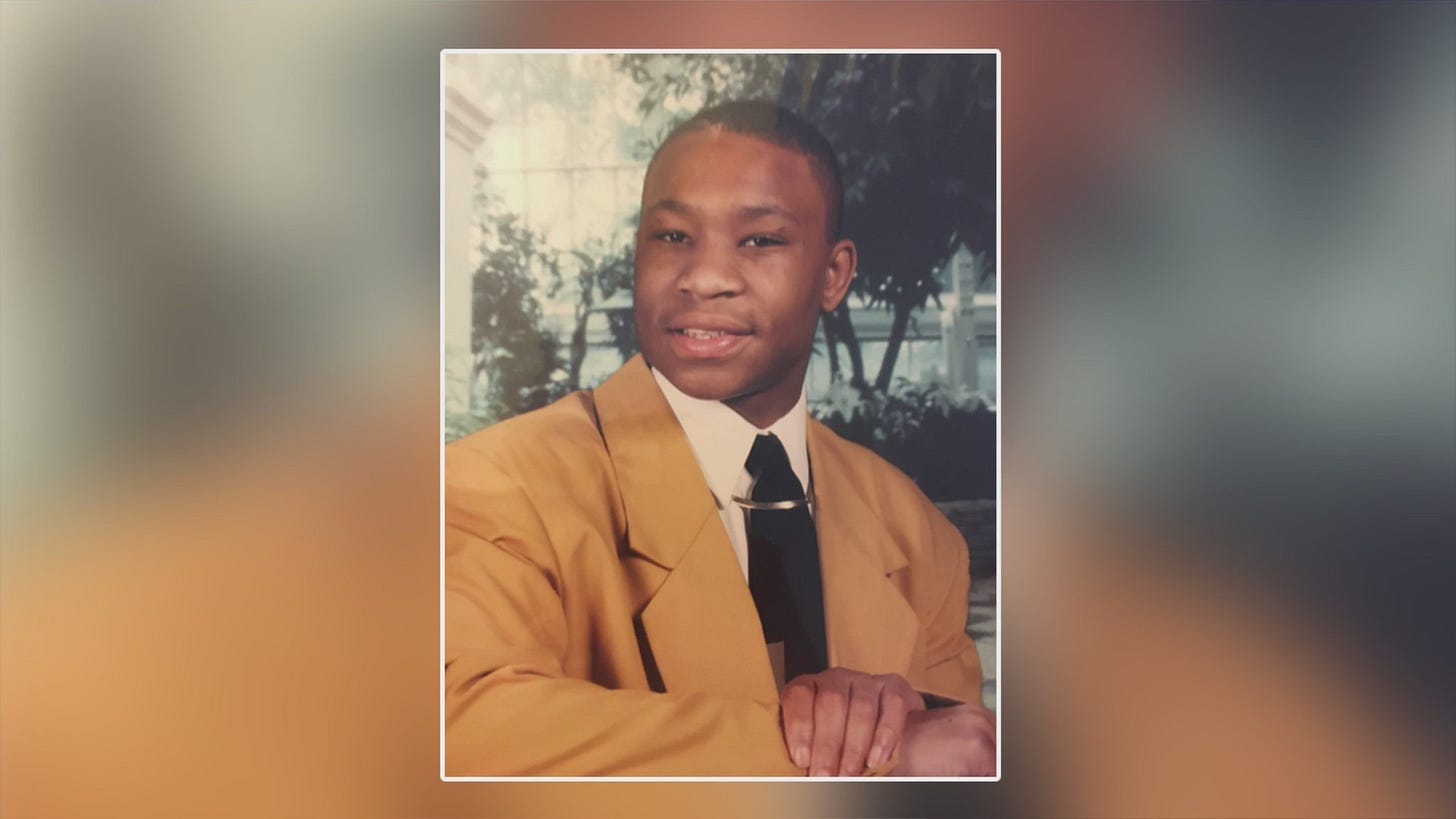What Hurts About a Wrongful Conviction
Robert Johnson isn't alone in being wrongfully punished after being lied about
Pain can lead people to act destructively and self destructively yet it can also result in some people being strongly led to help others who have suffered.
Robert Johnson is one of them. Wrongfully convicted and unjustly punished for nearly 30 years, Johnson was released from prison recently and his comments are notable and attention worthy.
Johnson’s conviction was vacated, in large part to the committed assistance he received from The Exoneration Project.
"I am just thankful that we got in front of a judge that was honorable, that was fair and finally put an end to this nightmare," he said. "This hell on earth."
Many will gloss over the specifics of what Johnson communicated. We assume, falsely, that all judges are ethical and honorable. No profession is immune from corruption. We, as disaffected observers, don’t see and feel the “nightmare” and “hell on earth” that it is to be wrongfully punished on multiple levels.
So we largely or fully ignore or dismiss it.
Johnson was 16 years old when he was arrested. Think about it, if that happened to us or a loved one or a good friend.
Why didn’t he speak up?
"I tried,” Johnson said, repeating what so many other people who end up punished for what they objectively, factually, didn’t do. “I screamed, with nobody listening to me.”
Imagine that depth of pain and lasting, excruciating trauma. You’re telling the truth and people not only don’t want to give you the time the day, not only don’t trust what you’re saying, they rigidly, arrogantly disbelieve you.
Until someone goes through that experience, they cannot know how it affects the mind and rest of the body emotionally, psychologically and physically. It is undoubtedly a critical injury and PTSD.
We’re taught to ask for help — and that truth and good people —- especially those entrusted to do the right thing, will be there for us. That’s simply not an absolute.
Sometimes, it’s worse, it’s a lie.
Johnson, however, didn’t give in and give up.

"No matter how many 'no's' I got, I got one ‘yes’ and that's when things started changing," he said. He kept trying, regardless of the past failures and odds to the often-corrupt nature of society.
Now freed, Johnson isn’t just thinking about himself. He’s not forgotten others.
"I would really like to start making the world more conscious of, there are a lot of people in prison for things they did not do," Johnson said.
Hogwash, most of society will say, especially if they or people they love or otherwise cared about have been victimized. “They all say they’re innocent.” That’s true, most all of them do. There are liars in prison and outside of prison.
There are violent people who belong in prison and violent, with authority and power, people living well in society.
Yes, there are those who are incarcerated who did do what they’ve been convicted of doing and many of them should not ever be released. Then, there is the highly uncomfortable truth there exists prisoners (and people not incarcerated) who didn’t do what they were convicted of doing.
It’s also true that there are individuals and groups outside of prison who long ago deserved to be incarcerated, yet they are not even on the radar of the legal authorities or the general public.
Megan Richardson, a staff attorney at The Exoneration Project, talked about Johnson.
"I mean, Robert's case is really stunning, because it really starts to make you wonder, how did he ever get convicted?" she said. "The state's entire case against Robert at trial was the incentivized testimony of a young juvenile defendant, and that's frankly it."
Witnesses implicated a different person in murder, a person that is now deceased.
Johnson's family knows what was taken from him and them.
"He missed out on a lifetime of experiences that he can never regain again... he can never get that time back," Johnson's aunt, Cynthia Booker said.
The punishment hurt on a granular level in many ways.
"The air is so much different. In prison, it’s suffocating, oppressive. It's dehumanizing,” Johnson said. “It smells like misery and death. Out here, in the free world, it doesn’t smell that way.”
Communication Intelligence column







